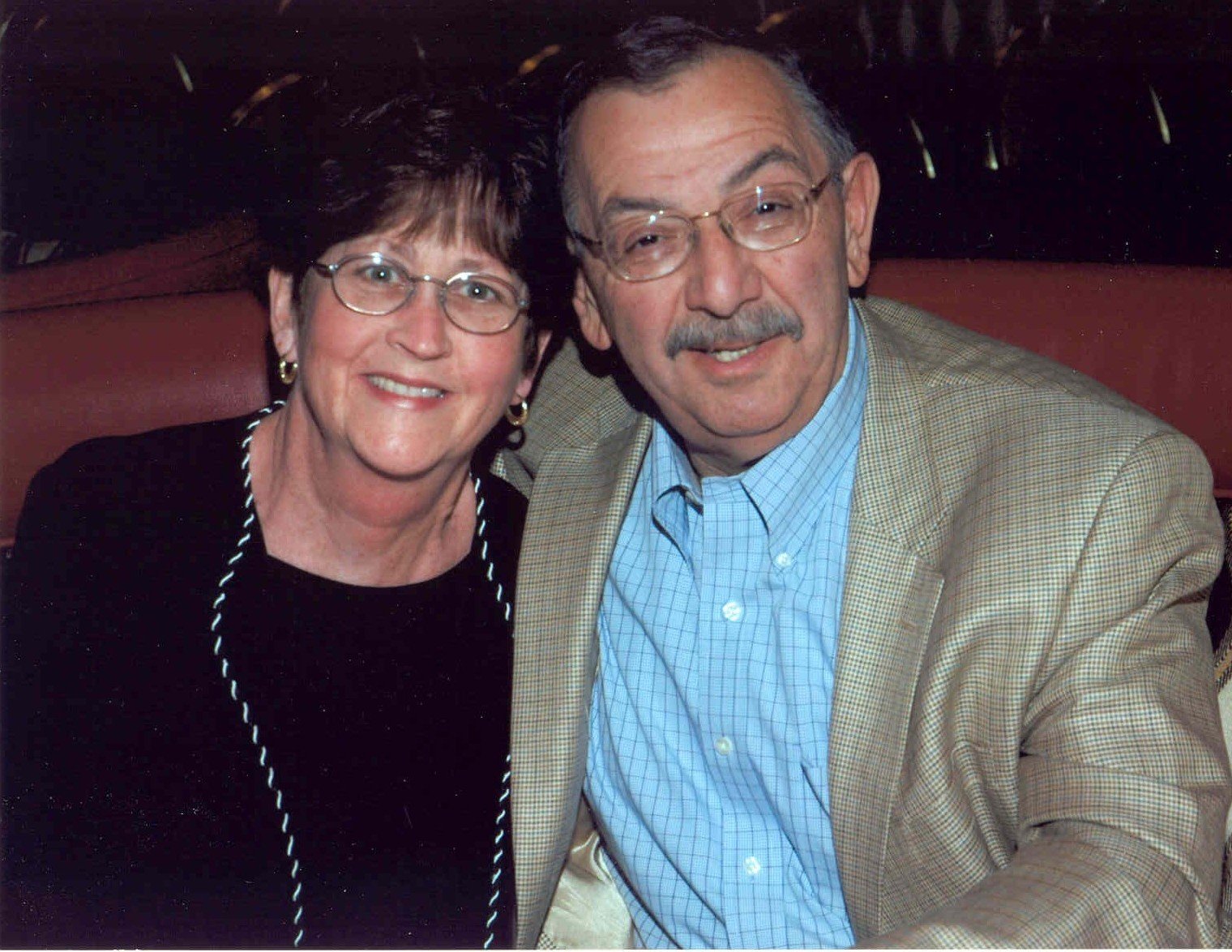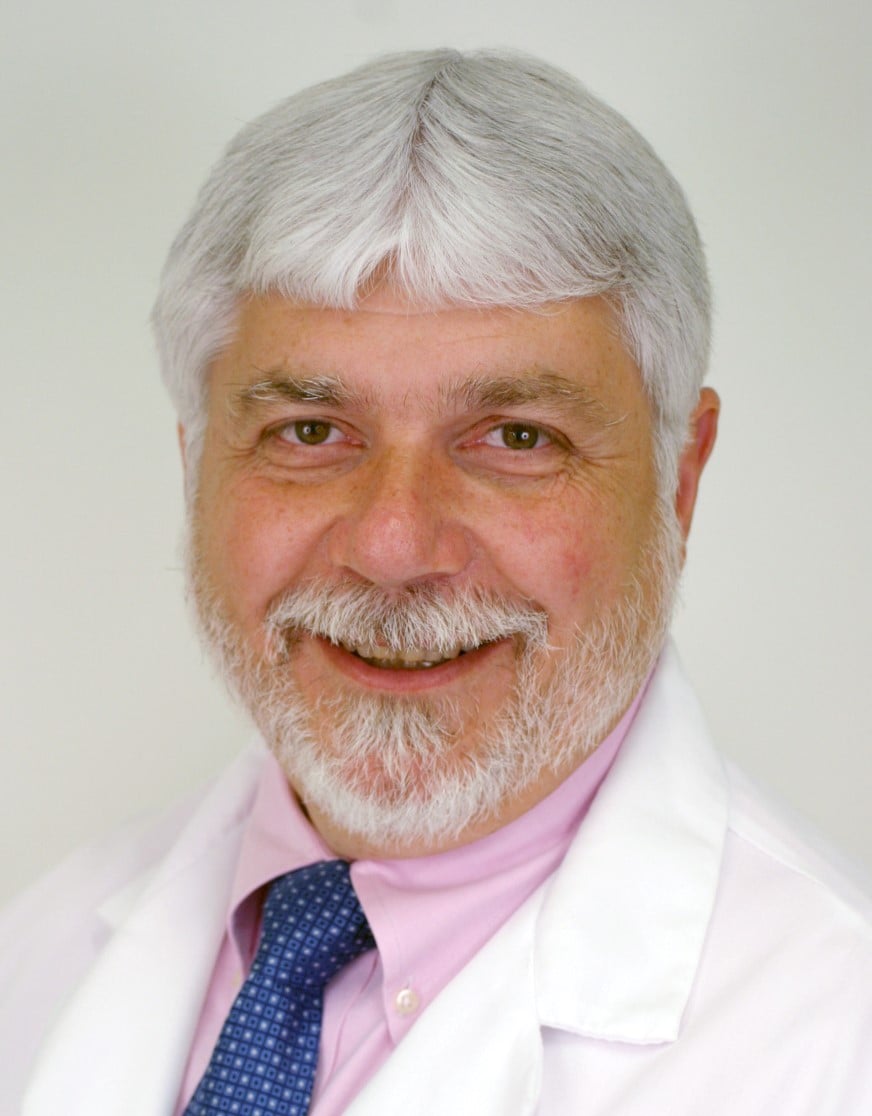Dedication, commitment to UMass Chan Medical School and emergency medicine recognized with new endowed chair
Ann Aghababian establishes lasting legacy to honor her husband, Richard V. Aghababian, MD’74
Oct. 26, 2020

When Ann and Richard Aghababian’s son was being treated at the University Campus in Worcester years ago, their young daughter spied the LifeFlight helicopter outside the hospital window, preparing for takeoff. Her dad, who was the chair of emergency medicine—and creator of the air ambulance program in New England—had already slipped out of the room to check on his team, even though he was off duty at the time. Moments later, as the helicopter lifted off to attend to a patient in need, the Aghababians’ daughter stated simply, “there goes Daddy.”
Ann tells this story to illustrate how devoted her husband Richard Aghababian, MD’74, was to UMass Chan Medical School and the field of emergency medicine, which he shaped and advanced in New England and in locations around the globe.
During his career as founding chair of the Department of Emergency Medicine, as a professor and as associate dean for continuing medical education, Dr. Aghababian’s dedication galvanized countless individuals, perhaps no one more than Gregory Volturo, MD, who became his closest colleague within the dynamic department, serving as his vice chair and later, his successor as chair.
In July 2020, Dr. Volturo was named the inaugural holder of the Richard V. Aghababian, MD’74, Chair in Emergency Medicine, which was established by Ann to honor her husband’s long and influential career, and the impact he made on his alma mater, the state’s first and only public medical school.
“This endowment puts a name on the foundation Dick built,” Dr. Volturo said. “It’s what he wanted—we had a conversation about it less than 24 hours before he passed away—and it’s the right thing to do for emergency medicine at UMass.
“We are thrilled about the endowment,” Ann said. “It supports, in perpetuity, what my husband worked so hard to develop at UMass Chan Medical School” – excellent emergency medicine practice, graduates and researchers. “It recognizes Dick’s contributions to the university and how he inspired others.”
Maverick, mentor, father, friend
Both Ann and Dr. Volturo describe Dr. Aghababian as a trailblazer, a maverick and a visionary—traits that he encouraged friends and family to embrace in themselves. Dr. Aghababian was a member of the first class at UMMS, but according to Ann, he weighed attending the fledgling institution against offers from three other medical schools.
“Dick had graduated from Harvard and eventually he said, ‘I went to the oldest school in the country … why not try out a brand, new medical school?’”
Next, Dr. Aghababian went to San Francisco where he completed what was the first emergency medicine fellowship at the time.
“He came back with a vision to establish a program in New England found a willing partner at UMass Chan Medical School,” said Ann. “He could think ahead, not just about the job at hand.”
During his fellowship at UCSF, Dr. Aghababian helped draft the first earthquake disaster plan for the city by the bay. He continued to sharpen disaster response methods as a natural extension of emergency medicine. For example, he traveled with teams and tons of equipment to Armenia after a devastating earthquake in 1988 and returned there often to help transform a Soviet-era emergency medical service into a modern system. The Disaster Medical Assistance Team, or DMAT, he established aided thousands in the wake of hurricanes in Florida and man-made destruction in Oklahoma City, as well as in New York City on 9/11. He and Dr. Volturo also helped launch emergency medicine programs in Guatemala, the Dominican Republic and Hungary.

“Dick brought his ideas and I operationalized them,” Dr. Volturo said of their successful partnership at home and abroad.
Dr. Aghababian, who passed away in October 2014, also made life-changing impacts on a smaller scale.
“After he died, I received a letter from a woman who, years ago, had worries about taking a job; she wasn’t sure she could do it. Dick had told her, ‘yes, you can,’ and she did,” said Ann. “Other letters I received described what a great mentor he was. Once, I was in a store and my last name was mentioned. A woman came up to me and said, ‘Are you related to Dick Aghababian? He was my mentor.
“Dick told our children to find their passions, and to use their unique skills and talents, which he always appreciated in others,” Ann continued.
An endowment to reach greater heights
Dr. Aghababian was a mentor, a colleague and long-time friend to Dr. Volturo. They had developed a special bond common among practitioners of emergency medicine.
“It gets in your blood. The field is very interesting and hard,” Dr. Volturo said. “It offers great diversity and the opportunity to help people, particularly those who are not at the top of the socioeconomic ladder. And, we just didn’t sit still. If we did, we’d fall sound asleep!”
After Dr. Aghababian stepped down from his role as chair of emergency medicine in 2007, Dr. Volturo continued to build upon the innovations he introduced to UMMS and the field. There are many in addition to LifeFlight, including a Global Health Division that is now creating a Health Equities fellowship; a “hub and spoke” model that serves hospitals throughout the region with the University Campus hospital at the center; New England’s first emergency department observation unit designed to reduce hospitalizations; an emergency medicine curriculum now taught in each of the medical school’s four years by an expanded faculty; and a competitive residency program whose graduates are sought after by health care systems across the country.
But it’s the growing research program that Dr. Volturo is especially proud of, and he knows Dr. Aghababian would be, too.
“We’re now in the top five in NIH funding of emergency medicine programs in the country,” he said.
Dr. Volturo approaches the research program like you would a financial portfolio: diversify.
“It better meets the varied interests of our faculty and allows the department to take advantage of several different funding streams,” he said. “Emergency medicine physicians have diverse interests and have a tendency to focus in multiple areas. Our research programs range from work on the GI microbiome and its function in Alzheimer’s to skin and soft tissue studies, from antibiotic clinical trials to behavioral health and suicide prevention, and from award-winning substance abuse research to the use of technology to aid in addiction intervention.”
The Richard V. Aghababian, MD’74, Chair in Emergency Medicine represents yet another advancement for a department whose founder inspired and influenced so many.
“There aren’t many endowed chairs in emergency medicine,” Dr. Volturo said. “We’ll get to greater heights at UMass Medical School because Dick created a foundation to build on and because Ann established this endowed chair to honor him and his legacy. There is no question we will continue to fulfill the mission of this endowment.”
